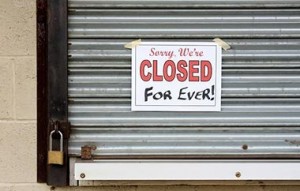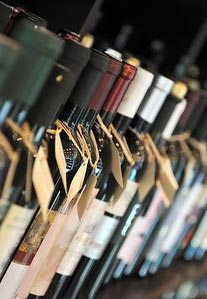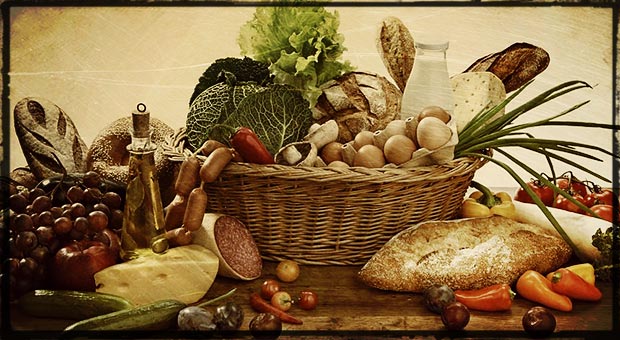There’s no question in a lot of people’s minds that we are headed for a financial crisis. The only question really is when is it going to come? Every day we get closer to it, even though the Fed Chairman is doing everything he can to stave it off.
There are a lot of things that happen when a country’s economy crashes; some expected and some unexpected. A lot depends upon how the government reacts to it and what austerity measures they put in place to curtail spending, so that the country can work its way back out of the mess. In the mean time, while the crash is still going on, the people suffer.
We’ve seen this before in Argentina, as well as the German occupied countries of Europe; even here in our own country, during the Great Depression. People still have to live their lives, even though the country’s financial situation makes it harder for them to do that. Part of the way that they do so is to ignore the government economy and return back to the basics of bartering.
In a barter economy, goods and services are traded directly, based upon their value to the people who are doing the trading. Like any other time, that value depends upon the law of supply and demand. The one thing that is different is that demand for many things previously considered valuable drops, while the value of the basic necessities of life increases. This makes the relative value between items change drastically from what people are used to.
This was very clear in German occupied Europe during the Second World War. Germany was rationing everything, taking most of what the occupied countries produced and shipping it to Germany for their own use. This left people short of many basic needs, such as food.
The people living in the cities of these countries would take suitcases full of valuables and go out to visit “friends” in the country. Actually, they were going to visit farmers in the country for a little black market bartering. They would trade silver tea sets and jewelry for hams, sausages, cheese and butter. Many farmers became rich from that trade.
 You see, the demand for jewelry and silver was very low during World War II. Oh, German soldiers would buy it, but they were about the only ones who could. People who were having trouble feeding their families weren’t interested in buying silver tea sets. No, they traded those things, which they had bought at great price, for the things they needed to survive. The silver wasn’t worth much, because it couldn’t help them survive, except by trading it for food.
You see, the demand for jewelry and silver was very low during World War II. Oh, German soldiers would buy it, but they were about the only ones who could. People who were having trouble feeding their families weren’t interested in buying silver tea sets. No, they traded those things, which they had bought at great price, for the things they needed to survive. The silver wasn’t worth much, because it couldn’t help them survive, except by trading it for food.
What About Here?
We can expect the same thing to happen here in the United States when the brown stuff hits the rotary air movement device.
The necessities for survival will become valuable, and things which are considered valuable today will be all but forgotten. People will be scrounging for food, fuel, medicines, and other basic needs; they won’t be interested in gaudy baubles and fancy electronic devices that won’t keep their families alive.
While it is impossible to determine the actual value of goods before the crisis strikes, one of the major factors that will affect it will be how necessary that item is for survival.
We’re going to see a time when items that seem simple and basic to us today become prized possessions. What will a roll of toilet paper be worth? It doesn’t seem like much to us today, but what about when there isn’t any?
At the same time, many businesses which specialize in providing luxury goods will go bankrupt. A lot of the unemployment that will come in that time will be due to the closing of those businesses. Without a middle class to buy those products, the companies which manufacture and sell them will run out of money and close their doors.
 Probably the most profitable business to own when the SHTF will be a liquor store. Interestingly enough, sales of alcohol always increase after a major disaster.
Probably the most profitable business to own when the SHTF will be a liquor store. Interestingly enough, sales of alcohol always increase after a major disaster.
People are trying to come to grips with the situation and many need something to help them. Not knowing what to do, many turn to drugs and alcohol as an escape, trying to forget their problems, if even for a moment. Of course, doing so only increasesthose problems when they wake up the next morning.
Jobs which are critical for survival will remain strong. Healthcare professionals, those who produce food and other similar professions that meet our basic needs will probably be the least hit. On the other end of the scale, salespeople will probably be the hardest hit, especially those who are selling cars, jewelry and other luxuries. Surprisingly enough sports figures and entertainers may not fare as bad, as people always look for diversions in a time of crisis.
Value will be based on need, just as it always is. The major difference is that in that time, our needs will be much closer associated with our survival, rather than being associated with our wants. We will fall back down to the lowest levels of Maslow’s Hierarchy, placing our value on those things which will help us to survive.
 This article has been written by Bill White for Survivopedia.
This article has been written by Bill White for Survivopedia.
Photo source: 123RF.





















































































The true value of any goods or services is what someone else is willing to pay for it. I learned that lesson a long time ago. The price tag is negotiable. Even at Wal-Mart.
Which Maslow’s are you talking about? The original or the revised. In crisis situations, it can make a difference.
Why the Dollar is about to collapse , read these links
http://thehill.com/homenews/administration/200406-senate-scrambles-for-an-aid-bill
“In January, House GOP leaders told the administration they would approve the IMF language if the IRS would scrap a proposed rule governing 501(c)(4) groups. A Democratic source familiar with the negotiations said the GOP has not moved off that position.”
This obviously spurred the question of what is this IRS proposed rule? See the following link:
http://www.reuters.com/article/2014/02/28/ccagw-irs-proposed-rule-idUSnBw285782a+100+BSW20140228
And another connecting both the IMF reforms and IRS proposed rule change:
http://www.politico.com/story/2014/01/international-monetary-fund-internal-revenue-service-spending-bill-102347.html
Quotes from the last link:
“The stakes are big.”
“U.S. trading partners are collateral damage in the political fight over the omnibus. More than three years after brokering an IMF deal in November 2010, Washington still can’t make good on its pledges and is holding up reforms promised to emerging economies like Brazil and India.”
“The world has changed dramatically since the IMF was established in 1945 after the wreckage of World War II. Emerging economies need to play a greater role, and the U.S. has a stake in facilitating this process while also making good on its own pledges to maintain its leadership position in the IMF.”
Then read this Link , and you will begin to see the real picture and its not good , it shows how we have been backed into a corner , and this is a failure by our Government and a national Security threat .
http://www.reuters.com/article/2014/03/06/us-imf-reforms-idUSBREA251IN20140306
Now you can see why Russia has Invaded Ukraine ,
THIS WILL HYPER INFLATE THE PRICE OF EVERYTHING AND COLLAPSE THE MARKET INSTANTLY AS WELL AS FORCE THE BANKRUPTCY OF THE USA !!!!!!!!!
THE RUSSIANS ARE TAKING CONTROL OF THE UKRAINIAN GAS PIPELINE REGION TOO FORCE THE E.U. TO SUBMIT TO DEFECTING FROM THE DOLLAR and thus DEFECTING FROM THE U.S.A. !!!!!!
http://www.theguardian.com/world/2014/mar/03/europes-gas-supply-ukraine-crisis-russsia-pipelines
This goes hand in hand with the Russian Iran alliance on the Islamic Pipeline and a new Desired Currency pricing system other than the petrol dollar . http://www.examiner.com/article/it-s-not-about-the-chemical-weapons-it-s-about-the-syrian-pipeline
http://shariaunveiled.wordpress.com/2013/09/06/the-truth-behind-the-war-in-syria-the-qatari-natural-gas-pipeline-obamas-war-for-oil/
China is behind this all the way !!!!! The USA is trying to get China to side with them but China wants a New World trade currency out of this too and it be them ,
Oh they are trying to SPIN it as a China and US against the Russian Bear but thats not the truth !!! http://www.washingtonpost.com/politics/hoping-to-isolate-russia-us-woos-china-on-ukraine/2014/03/10/15dfba00-a8b3-11e3-8a7b-c1c684e2671f_story.html
The USA is technically isolated right now !!!!!!!
In April at the G 20 we will be formally introduced to this new world order !!!!!
The Ukraine alliance has been KEY to a dollar pricing system into the EU , and they are going to be forced to DEFECT by RUSSIA saying they control the route totally and if they want Gas they will agree to new SDRs proposed to the IMF and World bank , which approve of a new trade currency .
http://www.reuters.com/article/2014/03/11/us-eu-energy-russia-gazprom-idUSBREA2A0ZT20140311
RUSSIA PUSHES DEEPER INTO UKRAINE !!!!
http://www.woodradio.com/articles/breaking-news-478151/russia-military-moves-deeper-into-ukraine-12114037
So The Transition to a new world trade currency is described interestingly here at this link ,
SDR’s and the New Bretton Woods – Part Nine
http://philosophyofmetrics.com/2014/03/11/sdrs-and-the-new-bretton-woods-part-nine/
I don’t see much precious metals being traded in the form of tea sets or the like as almost all things like that are no longer made or sold. I have no idea where you could even buy an all silver tea set. And I like most people don’t have the ability to test for silver value. How do you tell plated from solid silver? I know Ster or 925 is supposed to be stamped on real silver, but it’s not a guarantee.
But if we do have a serious SHTF event I do see silver coins, bars and junk silver coins being used. And silver coins are clearly marked with the weight and purity, this makes it easy to know the value.
Personally my barter item is my skills at repairing things, I can fix almost everything. I am always buying tools and supplies to support my home repair business. Skills and supporting tools and supplies are a main focus for me. People will always need things repaired and I have built a business (small one, but big enough to work for me) based on repairing homes for people that rent homes and flip homes. I see myself trading for silver if it ever does get that bad.
I still buy silver every week, but you can never have too much of it but it’s more for big purchases then it is for everyday items or food.
.
I see junk silver, AKA common date US dimes, quarters, halves, dollars dated prior to 1965. Silver nickels dated 1942-45, and 40% silver Kennedy halves dated 1965-1969. Don’t waste your money on modern gold coins larger than 1/10th oz. I always try to tell people to think about buying $50 worth of groceries anywhere and asking for change for a $1,500 check (1 oz gold) to give them a better grasp on what I’m saying. Always use US silver coins, as opposed to silver coins from other countries, because most people can recognize US coins and somewhat relate to their value. Beware of silver dollars, even US ones, because the Chinese turn them out by the boatload – as a dealer I have a whole box full of these clunkers that people just leave when I tell them they are fakes. Silver bars and rounds are OK, but most novices will not be able to relate a fixed value to them in a time of bartering after the SHTF.